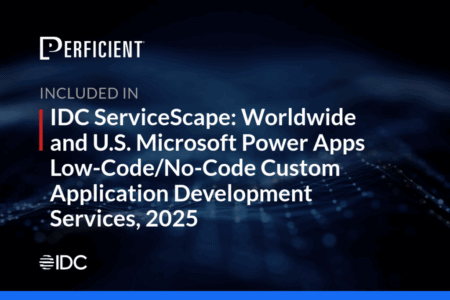The headlines are troubling but predictable. The Trump administration will launch a program next year to find out how much money an artificial intelligence algorithm could save the federal government by denying care to Medicare patients. Meanwhile, a survey of physicians published by the American Medical Association in February found that 61% think AI is “increasing prior authorization denials, exacerbating avoidable patient harms and escalating unnecessary waste now and into the future.”
We’re witnessing the healthcare industry’s narrow vision of AI in action: algorithms designed to say “no” faster and more efficiently than ever before. But what if we’re missing the bigger opportunity?
The Current AI Problem: Built to Deny, Not to Help
The recent expansion of AI-powered prior authorization reveals a fundamental flaw in how we’re approaching healthcare technology. “The more expensive it is, the more likely it is to be denied,” said Jennifer Oliva, a professor at the Maurer School of Law at Indiana University-Bloomington, whose work focuses on AI regulation and health coverage.
This approach creates a vicious cycle: patients don’t understand their benefits, seek inappropriate or unnecessary care, trigger costly prior authorization processes, face denials, appeal those denials, and ultimately either give up or create even more administrative burden for everyone involved.
The human cost is real. Nearly three-quarters of respondents thought prior authorization was a “major” problem in a July poll published by KFF, and we’ve seen how public displeasure with insurance denials dominated the news in December, when the shooting death of UnitedHealthcare’s CEO led many to anoint his alleged killer as a folk hero.
A Better Vision: The AI Concierge Approach
What if instead of using AI to deny care more efficiently, we used it to help patients access the right care more effectively? This is where the AI Concierge concept transforms the entire equation.
An AI Concierge doesn’t wait for a claim to be submitted to make a decision. Instead, it proactively:
- Educates patients about their benefits before they need care
- Guides them to appropriate providers within their network
- Explains coverage limitations in plain language before appointments
- Suggests preventive alternatives that could avoid more expensive interventions
- Streamlines pre-authorization by ensuring patients have the right documentation upfront
The Quantified Business Case
The financial argument for AI Concierge services is compelling:
Star Ratings Revenue Impact: A half-star increase in Medicare Star Ratings is valued at approximately $500 per member. For a 75,000-member plan, that translates to $37.5 million in additional funding. An AI Concierge directly improves patient satisfaction scores that drive these ratings.
Operational Efficiency Gains: Healthcare providers implementing AI-powered patient engagement systems report 15-20% boosts in clinic revenue and 10-20% reductions in overall operational costs. Clinics using AI tools see 15-25% increases in patient retention rates.
Cost Avoidance Through Prevention: Utilizing AI to help patients access appropriate care could save up to 50% on treatment costs while improving health outcomes by up to 40%. This happens by preventing more expensive interventions through proper preventive care utilization.
The HEDIS Connection
HEDIS measures provide the perfect framework for demonstrating AI Concierge value. With 235 million people enrolled in plans that report HEDIS results, improving these scores directly impacts revenue through bonus payments and competitive positioning.
An AI Concierge naturally improves HEDIS performance in:
- Preventive Care Measures: Proactive guidance increases screening and immunization rates
- Care Gap Closure: Identifies and addresses gaps before they become expensive problems
- Patient Engagement: Improves medication adherence and chronic disease management
Beyond the Pilot Programs
While government initiatives like the WISeR pilot program focus on “Wasteful and Inappropriate Service Reduction” through AI-powered denials, forward-thinking healthcare organizations have an opportunity to differentiate themselves with AI-powered patient empowerment.
The math is simple: preventing a $50,000 hospitalization through proactive care coordination delivers better ROI than efficiently denying the claim after it’s submitted.
AI Healthcare Concierge Implementation Strategy
For healthcare leaders considering AI Concierge implementation:
- Phase 1: Deploy AI-powered benefit explanation tools that reduce call center volume and improve patient understanding
- Phase 2: Integrate predictive analytics to identify patients at risk for expensive interventions and guide them to preventive alternatives
- Phase 3: Expand to comprehensive care navigation that optimizes both patient outcomes and organizational performance
The Competitive Advantage
While competitors invest in AI to process denials faster, organizations implementing AI Concierge services are investing in:
- Member satisfaction and retention (15-25% improvement rates)
- Star rating improvements ($500 per member value per half-star)
- Operational cost reduction (10-20% typical savings)
- Revenue protection through better member experience
Conclusion: Choose Your AI Future
The current trajectory of AI in healthcare—focused on denial optimization—represents a massive missed opportunity. As one physician noted about the Medicare pilot: “I will always, always err on the side that doctors know what’s best for their patients.”
AI Healthcare Concierge services align with this principle by empowering both patients and providers with better information, earlier intervention, and more effective care coordination. The technology exists. The business case is proven. The patient need is urgent.
The question isn’t whether AI will transform healthcare—it’s whether we’ll use it to build walls or bridges between patients and the care they need.
The choice is ours. Let’s choose wisely.
Source: Read MoreÂ

